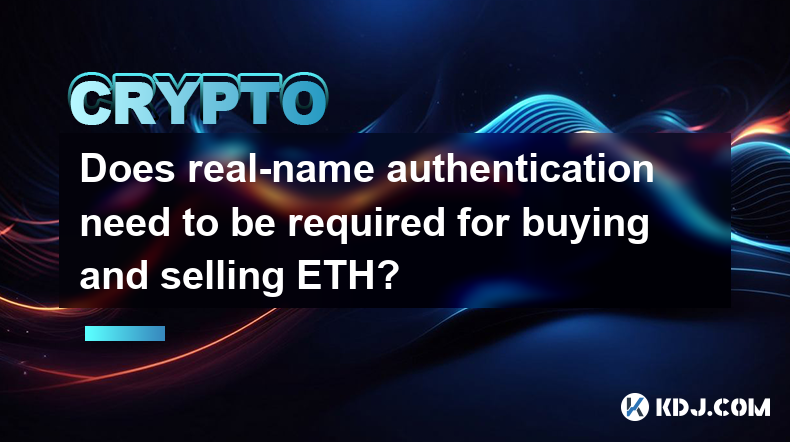-
 Bitcoin
Bitcoin $107,965.5977
-1.49% -
 Ethereum
Ethereum $2,537.2130
-1.84% -
 Tether USDt
Tether USDt $1.0000
-0.01% -
 XRP
XRP $2.2608
-0.71% -
 BNB
BNB $659.3980
-0.36% -
 Solana
Solana $148.7394
-2.41% -
 USDC
USDC $1.0000
0.01% -
 TRON
TRON $0.2873
-0.36% -
 Dogecoin
Dogecoin $0.1679
-4.64% -
 Cardano
Cardano $0.5763
-2.71% -
 Hyperliquid
Hyperliquid $37.4767
-6.61% -
 Bitcoin Cash
Bitcoin Cash $496.1888
-0.42% -
 Sui
Sui $2.8545
-3.01% -
 Chainlink
Chainlink $13.2532
-2.61% -
 UNUS SED LEO
UNUS SED LEO $9.0537
0.09% -
 Stellar
Stellar $0.2467
-2.27% -
 Avalanche
Avalanche $17.8240
-3.64% -
 Shiba Inu
Shiba Inu $0.0...01160
-2.60% -
 Toncoin
Toncoin $2.7443
-3.31% -
 Hedera
Hedera $0.1560
-2.71% -
 Litecoin
Litecoin $85.9596
-2.27% -
 Monero
Monero $315.7623
-2.23% -
 Dai
Dai $1.0000
-0.01% -
 Polkadot
Polkadot $3.3513
-2.20% -
 Ethena USDe
Ethena USDe $1.0001
0.03% -
 Bitget Token
Bitget Token $4.2992
-3.24% -
 Uniswap
Uniswap $7.3735
-1.54% -
 Aave
Aave $278.5274
-3.41% -
 Pepe
Pepe $0.0...09849
-3.52% -
 Pi
Pi $0.4560
-3.35%
Does real-name authentication need to be required for buying and selling ETH?
2025/04/17 21:56

The question of whether real-name authentication is required for buying and selling Ethereum (ETH) is a common concern for many in the cryptocurrency community. Understanding the necessity of real-name authentication is crucial, as it can vary depending on the platform and jurisdiction you are operating within. In this article, we will delve into the specifics of when and why real-name authentication might be necessary, the implications of such requirements, and how you can navigate these regulations effectively.
The Basics of Real-Name Authentication in Cryptocurrency
Real-name authentication, often referred to as Know Your Customer (KYC) verification, is a process used by financial institutions and cryptocurrency exchanges to verify the identity of their users. The primary goal of KYC is to prevent illegal activities such as money laundering, fraud, and terrorist financing. When it comes to buying and selling ETH, the requirement for real-name authentication can differ significantly based on the platform you use and the country you reside in.
Platforms Requiring Real-Name Authentication
Many of the well-known cryptocurrency exchanges, such as Coinbase, Binance, and Kraken, require users to complete KYC verification before they can trade ETH. These platforms often have strict policies to comply with local and international regulations, including the Bank Secrecy Act (BSA) in the United States and the Anti-Money Laundering (AML) directives in the European Union. Here is a detailed look at how to complete real-name authentication on some popular platforms:
Coinbase:
- Visit the Coinbase website and sign up for an account.
- Navigate to the "Profile" section and click on "Verify Your Identity."
- Provide your personal information, including your full name, date of birth, and address.
- Upload a government-issued ID, such as a passport or driver's license.
- Wait for Coinbase to review and approve your verification.
Binance:
- Log into your Binance account.
- Go to the "User Center" and select "Identification."
- Choose the type of verification you need (Basic or Advanced).
- Fill in your personal details and upload the required documents, such as a national ID or passport.
- Complete any additional steps, such as taking a selfie with your ID.
- Await the verification process to be completed by Binance.
Kraken:
- Access your Kraken account.
- Click on "Get Verified" in the top right corner.
- Select the level of verification you want (Starter, Intermediate, or Pro).
- Enter your personal information and upload the necessary identification documents.
- Follow any additional prompts, such as providing proof of address.
- Wait for Kraken to process your verification request.
Jurisdictions and Their Impact on Real-Name Authentication
The requirement for real-name authentication can also be influenced by the jurisdiction in which you are trading. Countries with strict financial regulations tend to mandate KYC compliance for all cryptocurrency transactions. For instance, in the United States, the Financial Crimes Enforcement Network (FinCEN) requires cryptocurrency exchanges to adhere to KYC and AML regulations. Similarly, in the European Union, the Fifth Anti-Money Laundering Directive (5AMLD) extends these requirements to crypto platforms.
On the other hand, some jurisdictions may have more lenient regulations or no specific laws governing cryptocurrency transactions. In such cases, you might find platforms that do not require real-name authentication, though these are becoming increasingly rare as global standards tighten.
Implications of Real-Name Authentication
The implications of real-name authentication are multifaceted. On one hand, it enhances security by reducing the risk of fraudulent activities and ensuring that transactions are traceable. This can provide a safer trading environment for users and increase trust in the platform. On the other hand, it raises concerns about privacy and data security. Users must trust that their personal information will be handled securely and not misused or leaked.
Additionally, real-name authentication can limit the anonymity that many cryptocurrency enthusiasts value. For those who prioritize privacy, this requirement can be a significant drawback. However, it's worth noting that many platforms offer different levels of verification, allowing users to choose the level of privacy they are comfortable with, albeit with varying limits on trading activities.
Alternatives to Platforms Requiring Real-Name Authentication
For those who wish to avoid real-name authentication, there are alternative methods to buy and sell ETH. Peer-to-peer (P2P) exchanges and decentralized exchanges (DEXs) often do not require KYC verification. Here are some options:
P2P Exchanges:
- Platforms like LocalBitcoins and Paxful allow users to trade directly with one another without needing to go through a centralized exchange.
- Users can set their own terms and choose how much information they want to disclose.
Decentralized Exchanges (DEXs):
- DEXs like Uniswap and SushiSwap operate on blockchain technology and do not require users to provide personal information.
- Transactions are executed directly between users' wallets, maintaining a higher level of privacy.
Navigating Real-Name Authentication Requirements
If you find yourself in a situation where real-name authentication is mandatory, there are steps you can take to ensure a smooth verification process:
- Ensure Accuracy: Make sure all the information you provide is accurate and matches the documents you upload.
- Use High-Quality Images: When uploading identification documents, use clear, high-quality images to avoid delays in the verification process.
- Understand the Platform's Requirements: Each platform may have slightly different requirements, so take the time to understand what is needed before starting the verification process.
- Keep Your Information Secure: Be cautious about where you store your personal information and ensure that the platform you are using has robust security measures in place.
Frequently Asked Questions
Q: Can I buy and sell ETH anonymously on centralized exchanges?
A: It is highly unlikely to buy and sell ETH anonymously on centralized exchanges, as most require some form of KYC verification to comply with regulations. However, some centralized exchanges may offer tiers of verification with different levels of privacy and trading limits.
Q: Are there any risks associated with using P2P exchanges to avoid real-name authentication?
A: Yes, using P2P exchanges can come with risks such as scams, fraud, and the potential for dealing with unreliable traders. It's essential to use reputable platforms and take precautions to protect your funds.
Q: How can I protect my privacy while still complying with real-name authentication requirements?
A: To protect your privacy, choose platforms that offer strong security features, use a VPN for added anonymity, and only provide the minimum required information during the verification process. Additionally, consider using different email addresses and wallets for different platforms to compartmentalize your data.
Q: What should I do if my real-name authentication is rejected by a platform?
A: If your real-name authentication is rejected, review the platform's requirements and ensure all provided information and documents are accurate and clear. You may need to resubmit your application or contact customer support for further assistance.
부인 성명:info@kdj.com
제공된 정보는 거래 조언이 아닙니다. kdj.com은 이 기사에 제공된 정보를 기반으로 이루어진 투자에 대해 어떠한 책임도 지지 않습니다. 암호화폐는 변동성이 매우 높으므로 철저한 조사 후 신중하게 투자하는 것이 좋습니다!
본 웹사이트에 사용된 내용이 귀하의 저작권을 침해한다고 판단되는 경우, 즉시 당사(info@kdj.com)로 연락주시면 즉시 삭제하도록 하겠습니다.
- Bitcoin Solaris Market Launch: A New Dawn or Just Another Altcoin?
- 2025-07-08 20:30:12
- Bitcoin, Memecoin Mania, and the All-Time High Hunt: What's Next?
- 2025-07-08 20:30:12
- Byrq Coin: Scam or Savior? A Deep Dive Review
- 2025-07-08 20:50:12
- Shiba Inu's Burn Rate Bonanza: Can Crypto Burns Ignite a Price Rally?
- 2025-07-08 20:50:12
- Telekom, Injective 및 Validators : 네트워크 보안 및 성장에 대한 깊은 다이빙
- 2025-07-08 21:10:12
- ROM : Golden Age-60 만 명의 사전 등록 및 암호화 전리품!
- 2025-07-08 21:15:12
관련 지식

How to customize USDT TRC20 mining fees? Flexible adjustment tutorial
2025-06-13 01:42:24
<h3>Understanding USDT TRC20 Mining Fees</h3><p>Mining fees on the TRON (TRC20) network are essential for processing transactions. U...

USDT TRC20 transaction is stuck? Solution summary
2025-06-14 23:15:05
<h3>Understanding USDT TRC20 Transactions</h3><p>When users mention that a USDT TRC20 transaction is stuck, they typically refer to ...

How to cancel USDT TRC20 unconfirmed transactions? Operation guide
2025-06-13 23:01:04
<h3>Understanding USDT TRC20 Unconfirmed Transactions</h3><p>When dealing with USDT TRC20 transactions, it’s crucial to understand w...

How to check USDT TRC20 balance? Introduction to multiple query methods
2025-06-21 02:42:53
<h3>Understanding USDT TRC20 and Its Importance</h3><p>USDT (Tether) is one of the most widely used stablecoins in the cryptocurrenc...

What to do if USDT TRC20 transfers are congested? Speed up trading skills
2025-06-13 09:56:41
<h3>Understanding USDT TRC20 Transfer Congestion</h3><p>When transferring USDT TRC20, users may occasionally experience delays or co...

The relationship between USDT TRC20 and TRON chain: technical background analysis
2025-06-12 13:28:48
<h3>What is USDT TRC20?</h3><p>USDT TRC20 refers to the Tether (USDT) token issued on the TRON blockchain using the TRC-20 standard....

How to customize USDT TRC20 mining fees? Flexible adjustment tutorial
2025-06-13 01:42:24
<h3>Understanding USDT TRC20 Mining Fees</h3><p>Mining fees on the TRON (TRC20) network are essential for processing transactions. U...

USDT TRC20 transaction is stuck? Solution summary
2025-06-14 23:15:05
<h3>Understanding USDT TRC20 Transactions</h3><p>When users mention that a USDT TRC20 transaction is stuck, they typically refer to ...

How to cancel USDT TRC20 unconfirmed transactions? Operation guide
2025-06-13 23:01:04
<h3>Understanding USDT TRC20 Unconfirmed Transactions</h3><p>When dealing with USDT TRC20 transactions, it’s crucial to understand w...

How to check USDT TRC20 balance? Introduction to multiple query methods
2025-06-21 02:42:53
<h3>Understanding USDT TRC20 and Its Importance</h3><p>USDT (Tether) is one of the most widely used stablecoins in the cryptocurrenc...

What to do if USDT TRC20 transfers are congested? Speed up trading skills
2025-06-13 09:56:41
<h3>Understanding USDT TRC20 Transfer Congestion</h3><p>When transferring USDT TRC20, users may occasionally experience delays or co...

The relationship between USDT TRC20 and TRON chain: technical background analysis
2025-06-12 13:28:48
<h3>What is USDT TRC20?</h3><p>USDT TRC20 refers to the Tether (USDT) token issued on the TRON blockchain using the TRC-20 standard....
모든 기사 보기

























































































